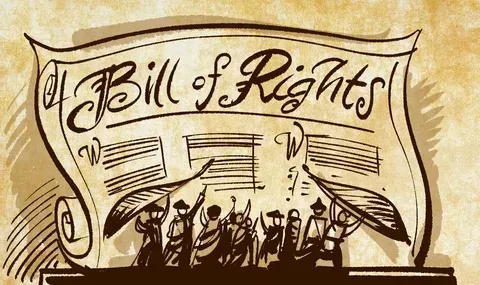Student Handbook: A Binding Legal Contract

Introduction
As a university student, you may have come across a document known as the Student Handbook. While it may seem like a collection of rules and regulations to abide by during your academic journey, it is extremely important to recognize that the Student Handbook is not just a mere guideline; it is a binding legal contract between you and your educational institution. In this blog post, we will discuss and analyse the significance of the Student Handbook, its legal implications, what it means for your responsibilities as a student, as well as what it means for your rights.
The Nature of a Contract
A contract is an agreement between parties, creating mutual obligations that are enforceable by law. It establishes the rights and obligations of those involved and provides a framework for the interactions between them. Contracts can take various forms, and they are not limited to business, real estate, or employment scenarios. In the case of a university student, the Student Handbook serves as a contractual agreement between the student and the academic institution. Although a Student Handbook may not resemble a traditional contract with signatures and explicit terms, it can still be considered a binding agreement. This is because universities often present the handbook to students during the admission process, implying that they accept and agree to its contents by enrolling in the institution.
Elements of a Binding Contract
For a contract to be considered binding, certain elements must be present. These include:
a) Offer and Acceptance: In this case, the university offers admission to a student, and by accepting this offer, the student then agrees to abide by the rules and policies outlined in the Student Handbook.
b) Consideration: For a contract to be valid, consideration must be exchanged between the parties involved. In the case of the Student Handbook, the consideration is twofold. Firstly, the university provides educational resources, facilities, and services. Secondly, the students agree to abide by the rules and regulations set forth in the handbook. This mutual exchange of promises and obligations constitutes the consideration necessary to establish a valid contract.
c) Mutual Agreement: Both the student and the university agree to be bound by the terms and conditions set forth by the Student Handbook.
d) Legal Capacity: The student is presumed to have the legal capacity to enter a contract, including being of age and mentally competent.
Understanding the Student Handbook
The Student Handbook typically contains a wide range of information, including academic policies, code of conduct, disciplinary procedures, campus safety guidelines, amongst other dispositions. It is crucial to thoroughly read and understand its contents to ensure compliance with the rules and expectations set by the university. Failure to adhere to these guidelines may result in disciplinary action.
Enforceability and Legal Consequences
Since the Student Handbook is considered a binding legal contract, universities have the authority to enforce its provisions. What this means for students is that failure to comply with the terms outlined in the handbook may result in disciplinary actions, ranging from minor sanctions all the way through academic probation, suspension, or even expulsion. Additionally, students may be subject to legal consequences if their actions violate local, state, or federal laws.
What many students are not aware though, is that the University who codified and compiled the handbook is also bound by its procedures, requirements, and policies. Students should thoroughly learn the dispositions from the Student Handbook from the beginning of their higher education journey, not only because it’s the blueprint of the student’s path, but also because it sets obligations from the school to the student body as well. When students are familiar with the handbook, they are also informed of the expectations that they should have towards the school, and how the university should act given those defined circumstances in the handbook.
For example, if the student fails a class and does not agree with the professor’s criteria of evaluation, the student should know if the school provides a grade appeal process. By knowing that, the student not only has the opportunity to challenge the grade, but also to follow the procedure outlined in the handbook and having a higher chance of success in their review. They can also determine or challenge if the professor followed the policy when grading the student, or during the very appeal of the grade challenged. The former example might seem mild at first, but there are many other instances when and student’s rights have been egregiously violated, and the student may even file a lawsuit against the university.
However, it is important to note that the enforceability of the Student Handbook may vary depending on jurisdiction and specific circumstances. Courts may evaluate factors such as the clarity of the handbook's language, whether it was provided to the student prior to enrollment, and if any amendments or revisions were communicated effectively.
Conclusion
While the Student Handbook may initially appear as a simple guide to campus life, it holds significant legal weight as a binding contract between universities and students. By providing the handbook to students during the enrollment process, universities establish a mutual understanding of rights, responsibilities, and obligations. Students should carefully review and familiarize themselves with the handbook to ensure compliance and avoid potential legal consequences. Remember, the Student Handbook is not just a compilation of rules, but a legally enforceable agreement that shapes the educational journey and fosters a respectful and orderly academic environment.
More News & Resources











